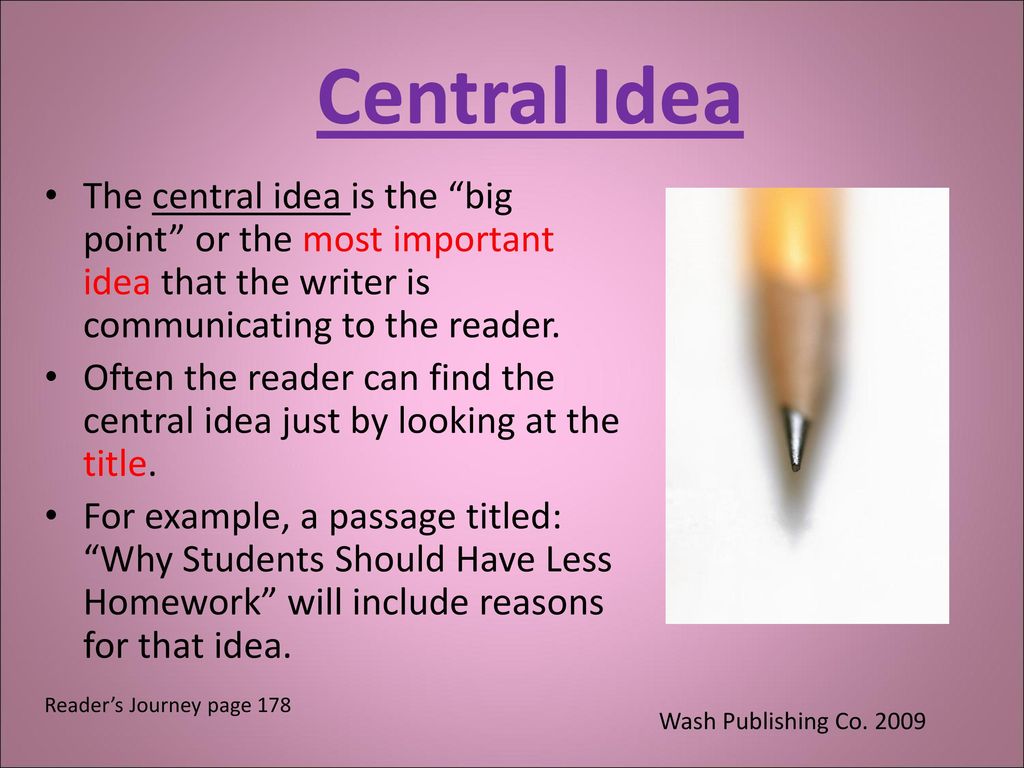Demystifying the Central Idea: Unveiling the Essence of Writing’s Guiding Light
Definition of Central Idea
At its core, the central idea is the overarching theme or main point that a piece of writing seeks to convey. It encapsulates the essence of the content, providing a focal point around which all other elements revolve. Think of it as the nucleus of an atom, around which electrons orbit, binding the entire structure together. While its manifestation may vary across different genres and forms of writing, the central idea remains constant—a lodestar guiding the narrative.
Identifying the Central Idea
Now that we’ve shed some light on what the freeport-real-estate.com/ entails, the next logical step is to uncover methods for identifying it within a piece of writing. Sometimes, the central idea reveals itself effortlessly, boldly announcing its presence in the opening paragraphs. Other times, it requires a keen eye and careful analysis to unearth. Techniques such as close reading, summarizing the main points, and examining recurring motifs can aid in this endeavor. Let’s delve deeper into these strategies with a few illustrative examples.
Consider a short story where the protagonist embarks on a quest for self-discovery. While the plot may meander through various twists and turns, the central idea—the journey towards self-realization—remains constant, anchoring the narrative and providing coherence.
Importance of Central Idea in Writing
The central idea serves as the backbone of any piece of writing, offering structure and cohesion amidst the chaotic whirlwind of words. Without a clear central idea, the writing becomes akin to a ship without a rudder, drifting aimlessly on an ocean of ambiguity. By anchoring the content around a central theme, writers can ensure that every sentence, paragraph, and section contributes to the overarching message, enhancing clarity and impact.
In fictional works, the central idea breathes life into the story, infusing it with depth and resonance. Whether it’s the pursuit of love, the struggle for survival, or the quest for redemption, the central idea shapes the narrative landscape, inviting readers to embark on an emotional journey.
Central Idea in Fictional Works
In the realm of fiction, the central idea serves as the beating heart of storytelling, driving the narrative forward and imbuing it with meaning. Take, for instance, George Orwell’s timeless classic, “1984.” At its core, the central idea explores the dangers of totalitarianism and the importance of individual freedom—a theme that reverberates throughout the novel, shaping the characters’ actions and the dystopian world they inhabit.
Similarly, in J.R.R. Tolkien’s epic saga, “The Lord of the Rings,” the central idea revolves around the timeless battle between good and evil, with themes of friendship, sacrifice, and heroism woven seamlessly into the fabric of the story. By anchoring the narrative around these universal themes, Tolkien creates a rich and immersive world that resonates with readers across generations.
Central Idea in Non-fiction
While fictional works rely on the central idea to drive the narrative, the concept is equally vital in non-fictional writing, where it serves as the cornerstone of argumentation and persuasion. Whether it’s an academic paper, a persuasive essay, or a marketing pitch, the central idea acts as the guiding principle, shaping the content and influencing the reader’s perception.
In academic writing, the central idea often takes the form of a thesis statement—a concise summary of the main argument or claim being advanced. This thesis serves as the focal point of the paper, guiding the reader through the author’s line of reasoning and providing a roadmap for the discussion that follows.
Developing a Strong Central Idea
Crafting a compelling central idea requires a delicate balance of creativity and clarity—a distillation of complex concepts into a succinct and engaging statement. To develop a strong central idea, writers must first identify the core message they wish to convey and then refine it into a clear and concise statement that encapsulates the essence of their argument or narrative.










